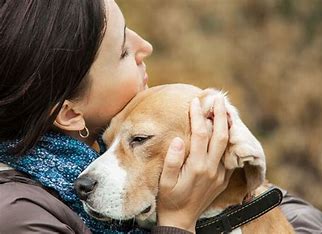The Grief of Losing a Pet
The bond between humans and pets is profound and unique. For many, pets are beloved family members who bring joy, companionship, and unconditional love. When we lose a pet, it’s natural to feel a deep sense of grief, yet society often underestimates the weight of this loss. The grief of losing a pet can be as intense and complex as any other type of loss, yet it’s sometimes minimised or misunderstood. This blog post explores why grieving a pet is deeply valid, how we can honour their memory, and ways to cope with the pain while moving forward.
Why Losing a Pet Can Feel So Painful
Pets are part of our daily lives. They greet us when we come home, offer comfort when we’re down, and share our routines. They witness our best and worst moments without judgment, offering acceptance and loyalty. This unique, unconditional bond makes their loss particularly painful. When a pet dies, we don’t just lose an animal, we lose a companion, a source of comfort, and a part of our identity and routine.
Additionally, the loss of a pet can stir up unresolved grief from other losses, intensifying our feelings and sometimes making the pain hard to navigate. Many people feel guilt or regret over the decisions they made for their pet’s care, adding another layer to their grief.
The Stages of Grieving a Pet
Just like with any other loss, grieving a pet can involve a wide range of emotions. While the stages of grief, denial, anger, bargaining, depression, and acceptance are not predictable, many people find themselves moving through some version of these phases:
- Denial: At first, it may be hard to accept that our pet is truly gone. Denial can be a way to protect ourselves from the immediate pain, giving us time to absorb the reality of the loss.
- Anger: You might feel anger toward yourself, the circumstances, or even the world. Sometimes, feelings of anger arise from guilt, as we question whether we could have done something differently.
- Bargaining: During this stage, people might find themselves going over “what if” scenarios, wondering if something could have been done to prevent the loss or to have more time with their pet.
- Depression: The sadness of missing a pet can be profound, especially as we experience the emptiness they leave behind. This can feel particularly acute when we return to routines that are now painfully quiet.
- Acceptance: Acceptance doesn’t mean you’ll no longer feel sad. It simply means that, over time, you’ll find ways to live with the reality of your pet’s absence, remembering them with love and perhaps a bittersweet peace.
Validating the Grief of Losing a Pet
One of the challenges with pet loss is that society doesn’t always acknowledge it as a “real” loss. People grieving a pet might hear well-meaning but dismissive comments like, “It was just a dog” or “You can always get another one.” These kinds of statements can invalidate feelings, making pet owners feel isolated or ashamed of their grief.
Grieving a pet is real, significant, and valid. If you’re mourning a pet, remind yourself that your grief is natural and that you have every right to feel it fully. Remember, too, that you’re not alone many people who have lost pets understand the depth of this pain.
Healthy Ways to Cope with the Loss of a Pet
- Allow Yourself to Grieve: Grieving a pet is not a sign of weakness or immaturity. Allow yourself to cry, to remember, and to miss them deeply. Acknowledge that the loss of a pet can be as intense as any other form of grief and that your feelings are real and important.
- Memorialise Your Pet: Consider making a scrapbook, planting a tree in their honour, or keeping a small keepsake, like a collar or favourite toy, as a reminder.
- Redefine Your Daily Routine: Pets are part of our everyday routines, from morning walks to bedtime cuddles. Adjusting to a new routine can be hard, but it can also be a helpful step toward healing. Consider finding new ways to fill the spaces they once occupied in your day, whether it’s taking up a new hobby, volunteering, or spending time with friends.
- Connect with Others Who Understand: Grief support groups for pet owners, both online and in person, can be a tremendous source of comfort. Talking to others who have experienced the loss of a pet can help you feel understood and less alone.
- Take Care of Your Emotional Health: Losing a pet can bring on waves of sadness, loneliness, and even depression. If you’re struggling, consider seeking support from a counsellor or therapist, especially one experienced with pet loss. They can offer guidance and support through the healing process.
The grief of losing a pet is not something to be dismissed or rushed through. Allow yourself to grieve and remember that healing doesn’t mean forgetting it means finding a new way to hold on to the love they left behind.

